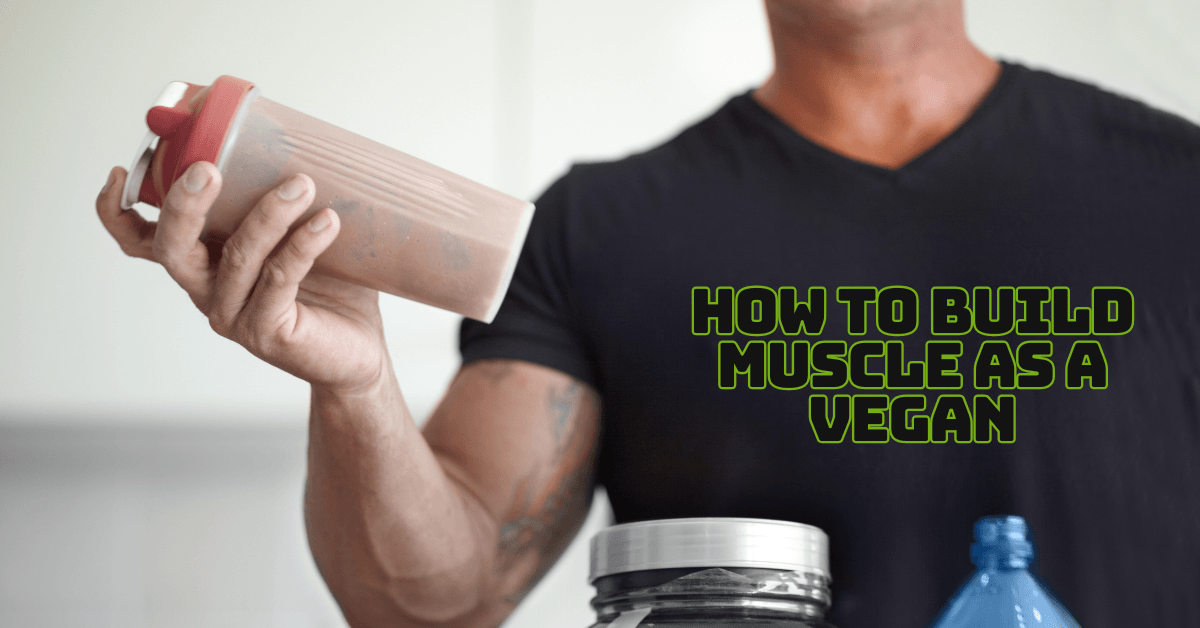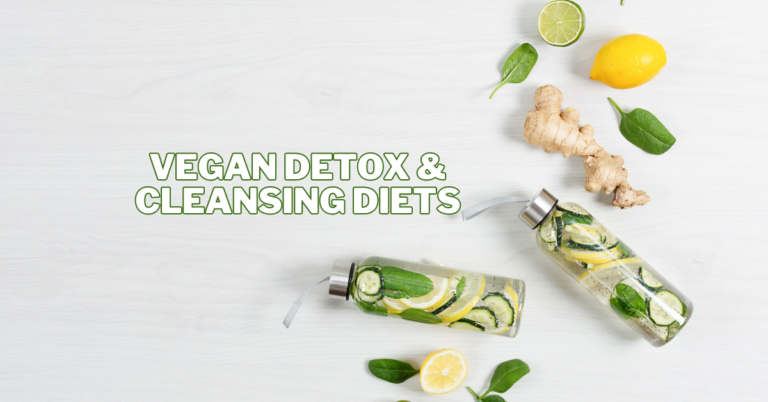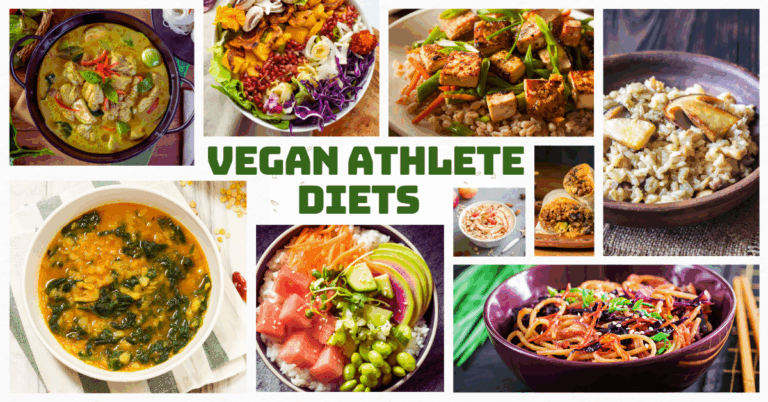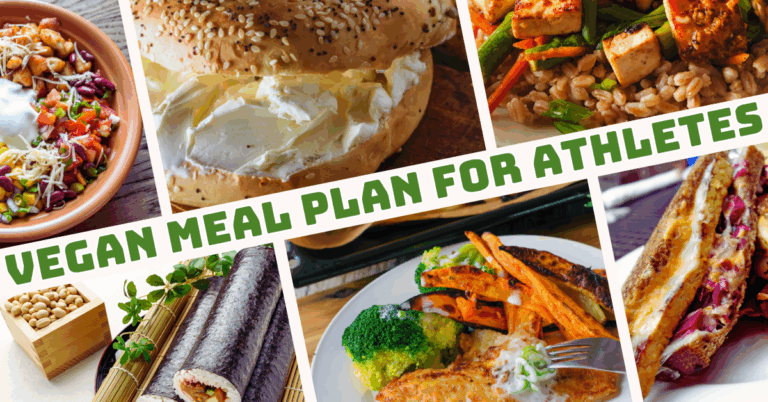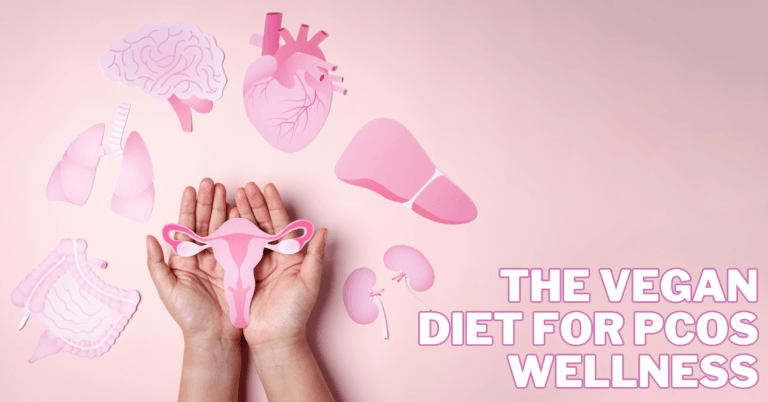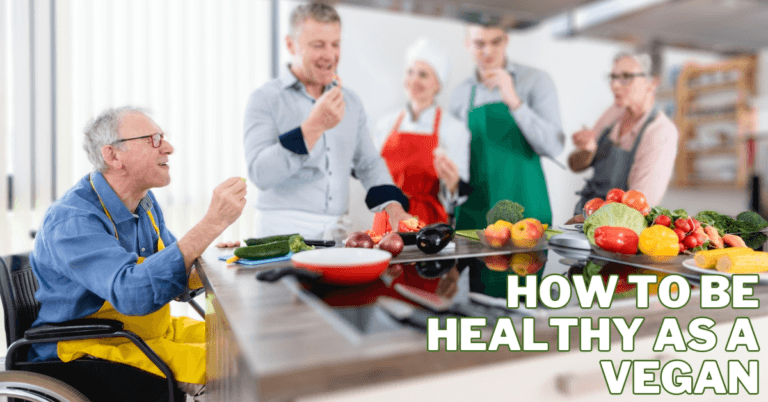How To Build Muscle As A Vegan
It is entirely viable and becoming more and more common to gain muscle on a vegan diet! Gaining strength and health without using animal products requires a combination of a plant-based diet, resistance training, and recuperation when learning how to grow muscle as a vegan.
Adopting a vegan diet can help you reach your strength and fitness objectives while promoting ethical living, human health, and the environment, regardless of your gym experience.
Let’s explore how!
How To Build Muscle As A Vegan
Building muscle on a vegan diet is absolutely achievable with the right balance of nutrition, training, and consistency. By focusing on quality plant-based protein, adequate calories, and proper recovery, vegans can support muscle growth just as effectively as those following other diets.
Best Vegan Protein Sources For Muscle Growth
The secret to gaining muscle on a vegan diet is choosing the appropriate plant-based protein sources. These foods fuel muscle repair and provide essential nutrients for recovery, strength, and long-term performance.
1. Lentils
Lentils provide about 18 grams of protein per cooked cup, iron, fibre, and slow-digesting carbohydrates. They promote sustained energy, digestion, and muscle recovery. Ideal for active vegans, a daily intake of 1 cup cooked lentils can help meet muscle-building protein and fibre needs.
2. Tofu
Each ½ cup of tofu delivers about 10 grams of protein and contains all nine essential amino acids, calcium, and iron. It aids in muscle growth and maintains strong bones. Consuming ½ to 1 cup daily supports nutrient balance and helps achieve protein goals on a plant-based diet.
3. Tempeh
Tempeh offers roughly 19 grams of protein per 100 grams and probiotics, iron, and calcium. Its fermentation enhances digestion and nutrient absorption.
A daily serving of 100–150 grams of tempeh is recommended for active vegans aiming for satiety, muscle repair, and improved gut health.
4. Seitan
Seitan provides about 21 grams of protein per 100 grams, offering one of the richest vegan protein sources. It is low in fat and carbs, promoting muscle protein synthesis.
A daily intake of 100 grams of seitan can significantly boost protein intake for muscle maintenance and vegan meal variety.
5. Quinoa
One cooked cup of quinoa supplies 8 grams of complete protein, along with magnesium, iron, and fibre. It fuels energy, aids muscle recovery, and improves digestion.
Eating 1–1½ cups cooked quinoa daily supports balanced amino acid intake and provides minerals critical for vegan athletic performance and recovery.
6. Chickpeas
Chickpeas contain about 15 grams of protein per cooked cup and are rich in fibre, iron, and folate. They enhance digestion, stabilize blood sugar, and support muscle repair.
One cup a day, whether in salads, stews, or snacks, helps vegans get the fibre and protein they need for good health.
7. Edamame
Edamame offers around 17 grams of protein per cooked cup, plus calcium, iron, and folate. It boosts lean muscle growth, strengthens bones, and enhances recovery.
A daily portion of 1 cup of cooked edamame is ideal for vegan athletes needing a complete protein source.
8. Plant-Based Protein Powders
Vegan protein powders from peas, hemp, rice, or pumpkin seeds deliver 20–30 grams of protein per scoop. They provide quick muscle repair and energy post-workout.
Using 1 scoop (about 20–30 grams of protein) daily, especially after training, helps vegans meet high protein demands efficiently and conveniently.
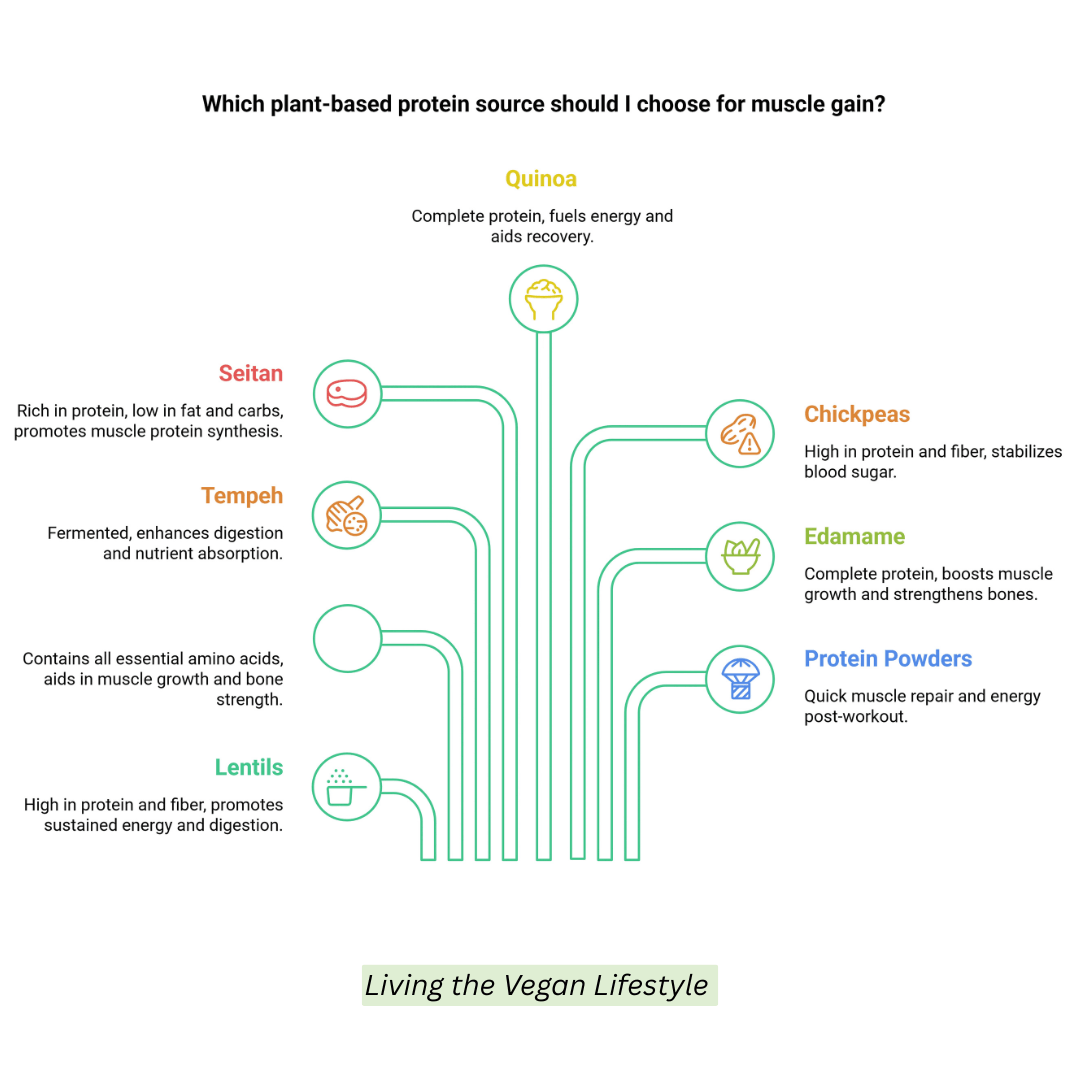
How To Build Muscle As A Vegan
If you follow the proper plan, you can gain muscle while following a vegan diet. Follow these key steps to fuel growth, optimize performance, and recover effectively without animal products.
Step 1: Prioritize Protein (Smartly)
Protein is the foundational building block for muscle repair and growth. Vegans must pay special attention to both the quantity and quality of their protein intake. Research suggests targeting 1.6–2.2 grams of protein per kilogram of body weight for optimal hypertrophy.
While some plant proteins are lower in specific amino acids like lysine or methionine, combining foods such as rice and beans creates a complete profile.
Vegan protein powders, especially those made from a blend of pea and rice, offer a highly bioavailable protein source.
Step 2: Eat Enough Calories
Insufficient caloric intake is one of the most common reasons vegans struggle to build muscle. Plant foods are generally less calorie-dense and higher in fibre, leading to early satiety. To counter this, focus on energy-dense foods like avocados, nut butters, tahini, dried fruits, and oils.
The Academy of Nutrition and Dietetics states that consuming 250–500 more calories daily over your maintenance level encourages lean muscle growth without causing excessive fat accumulation. To continuously meet energy needs, meal planning must be done strategically.
Step 3: Optimize Your Macronutrient Ratios
Balancing your macronutrients enhances both training performance and muscle recovery. For vegans, a recommended breakdown is 25–30% protein, 45–55% carbohydrates, and 20–30% fats.
While healthy fats from foods like avocados, flaxseeds, and chia seeds promote hormonal balance, carbohydrates are essential for recharging glycogen stores.
A Sports Medicine (2019) study emphasized that optimal macronutrient distribution significantly influences resistance training adaptations.
Prioritize complex carbs and unsaturated fats to maximize energy availability and anabolic hormone production throughout your training cycles.
Step 4: Train For Hypertrophy
Muscle hypertrophy is best achieved through resistance training that focuses on progressive overload. Exercises should target major muscle groups using multi-joint movements such as squats, deadlifts, bench presses, and pull-ups.
Ideal training protocols involve 3–5 weekly sessions, utilizing 6–12 rep ranges at 65–85% of your one-rep max. Rest intervals between sets should be 60–90 seconds to promote muscle fatigue and growth.
Research in the Journal of Strength and Conditioning Research affirms that volume, frequency, and load are key variables for maximizing hypertrophy.
Step 5: Prioritize Recovery
Recovery is where actual muscle growth happens. Without sufficient rest, muscles cannot repair and adapt to training stresses.
To keep growth hormone and testosterone levels at their ideal levels, one must get enough sleep, ideally 7 to 9 hours every night. Incorporate at least one to two full rest days per week.
Active recovery activities like light swimming, yoga, or foam rolling can also promote blood circulation and reduce muscle stiffness. Studies consistently link effective recovery practices to enhanced performance and reduced risk of injury.
Step 6: Supplement Wisely
Most nutritional needs can be satisfied by a well-planned vegan diet. However, some supplements can improve results and avoid shortages.
Though found naturally in animal tissues, Creatine monohydrate can be supplemented in synthetic vegan form to enhance strength and lean mass gains. Vitamin B12 supplementation is non-negotiable for nerve health and energy metabolism.
Additionally, omega-3 fatty acids from algae oil help control inflammation and support heart health. Evidence from the International Society of Sports Nutrition highlights creatine and B12 as critical for vegan athletes.
Step 7: Watch Out For Common Mistakes
Vegan athletes often face challenges like under-eating, neglecting protein diversity, and relying too heavily on processed foods. A diet rich in whole, minimally processed foods guarantees improved energy availability and vitamin consumption.
Failing to monitor progress can lead to plateaus; tracking food intake and workout performance is essential for timely adjustments.
Poor recovery habits, like chronic sleep deprivation, can severely hinder muscle gains. Addressing these common pitfalls proactively leads to sustained muscle-building success while maintaining overall health and well-being.
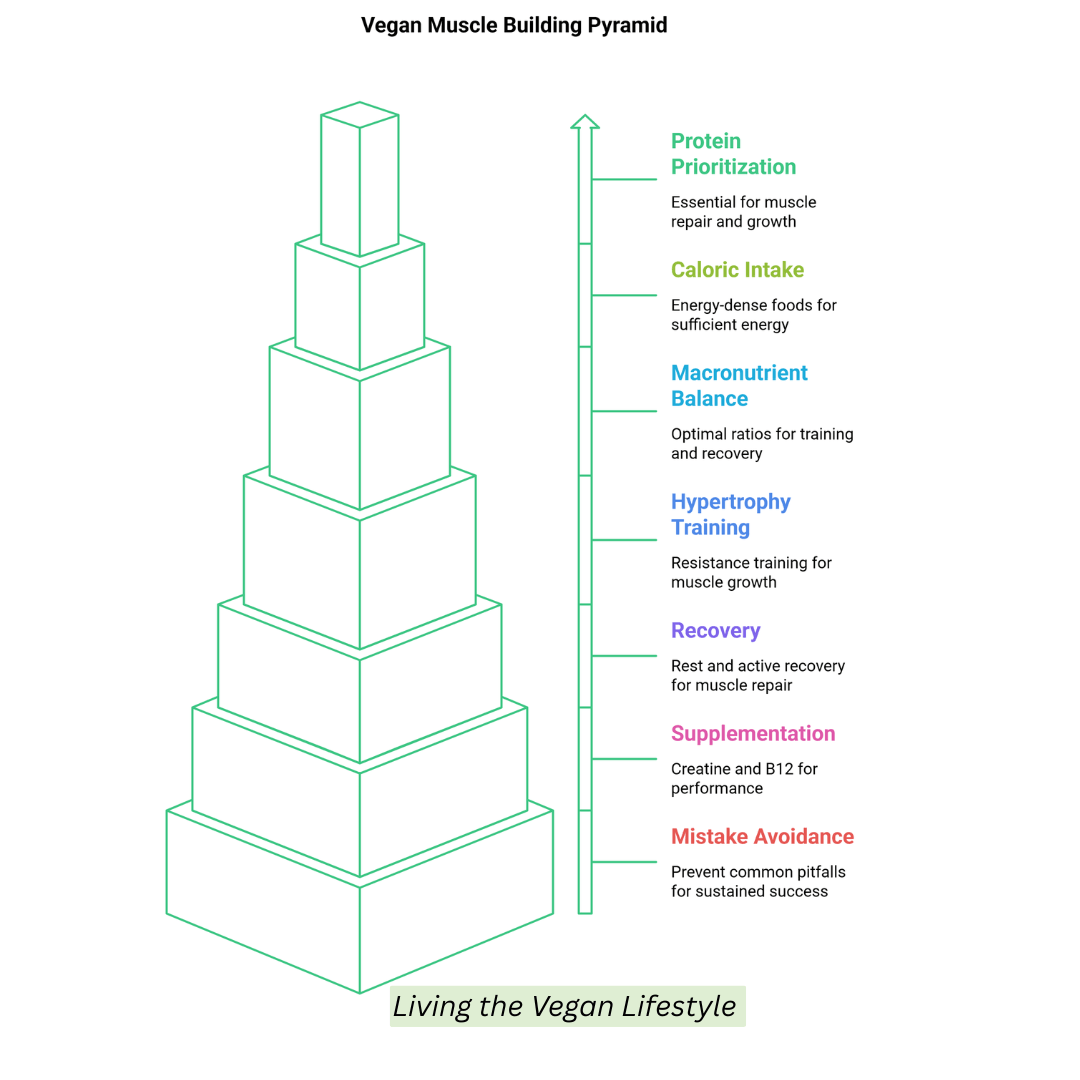
Vegan Meal Plan For Muscle Gain
This high-protein meal plan is designed to help you understand how to build muscle as a vegan while meeting your calorie and nutrient needs for muscle gain.
Here is a sample high-protein (3,000+ kcal) meal plan if you want to gain muscle as a vegan:
Breakfast
Start your day strong with these high-protein vegan breakfasts designed to boost energy, support muscle growth, and keep you feeling full and focused all morning.
1. Tofu Scramble
The tofu scramble is a protein-packed, plant-based alternative to scrambled eggs. It is perfect for a hearty vegan breakfast that supports muscle growth.
Prep time: 10 minutes | Cook time: 10 minutes | Total time: 20 minutes | Servings: 2
Ingredients
- Firm tofu: 200g, crumbled
- Olive oil: 1 tablespoon
- Turmeric: ¼ teaspoon
- Garlic powder: ½ teaspoon
- Sea salt and pepper to taste
- Bell peppers: ¼ cup, chopped
- Spinach: ¼ cup
Method
- Heat oil in a pan and sauté bell peppers for 2 minutes.
- Add crumbled tofu, turmeric, garlic powder, sea salt, and pepper.
- Stir-fry for 5–7 minutes until the tofu is slightly golden.
- Toss in spinach and cook until wilted. Serve warm.
Nutrition Facts (per serving)
- Calories: 250
- Protein: 30g
- Carbs: 8g
- Fat: 16g
Health Benefits
The tofu scramble offers high-quality plant protein and iron to support muscle repair and strength. Adding spinach and bell peppers enhances vitamin intake, aiding recovery and making this a well-rounded breakfast for building muscle on a vegan diet.
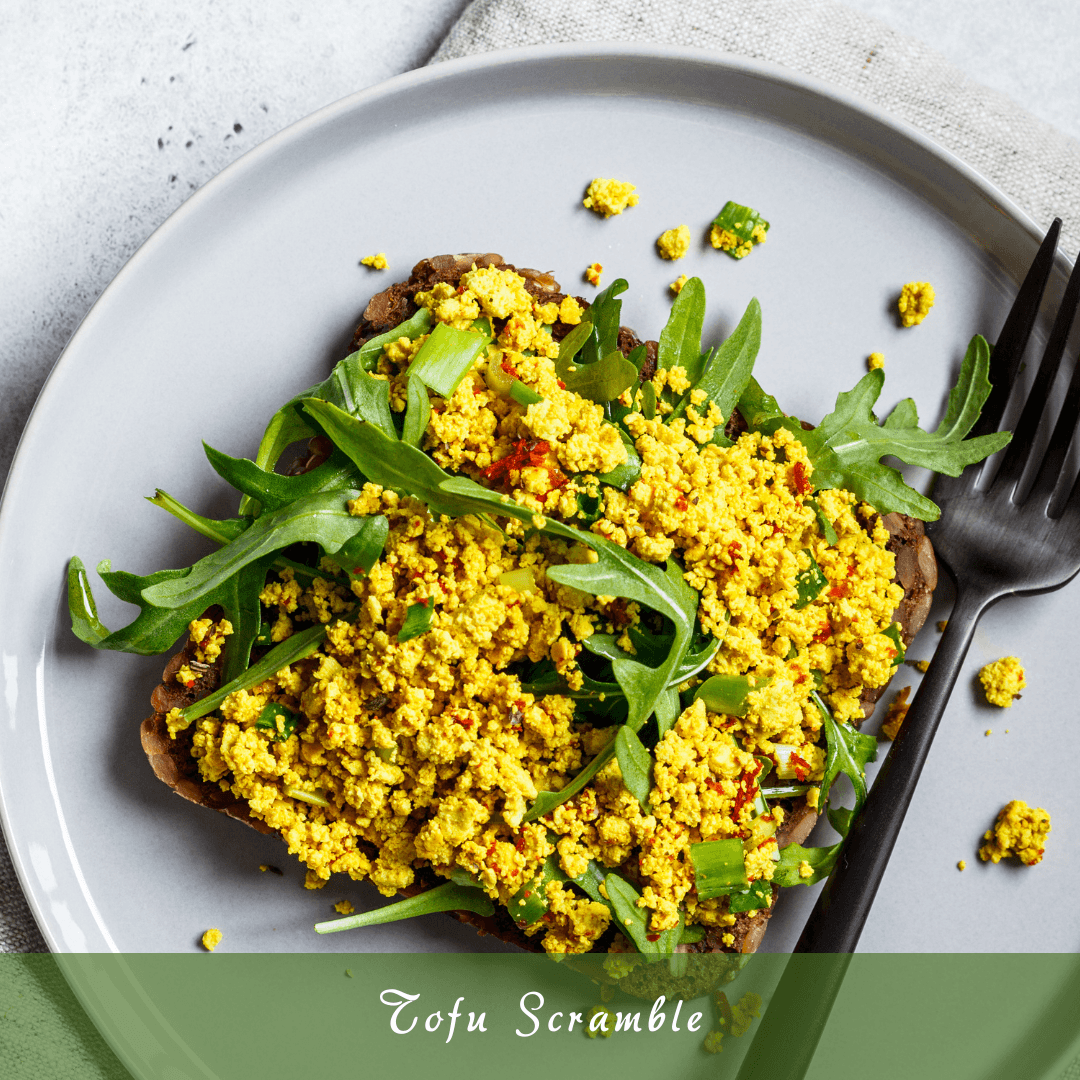
2. Avocado Toast On Whole-Grain Bread
A nutritious, heart-healthy breakfast combining complex carbs, healthy fats, and fibre to fuel your morning workouts.
Prep time: 5 minutes | Cook time: 5 minutes | Total time: 10 minutes | Servings: 1
Ingredients
- Whole-grain bread: 2 slices
- Ripe avocado: 1
- Sea salt, pepper, and chilli flakes to taste
- Lemon juice (optional)
Method
- Toast the bread to your desired crispness.
- Mix the mashed avocado with a squeeze of lemon, sea salt, and pepper.
- Spread on toast, sprinkle with chilli flakes, and serve.
Nutrition Facts (per serving)
- Calories: 350
- Protein: 8g
- Carbs: 28g
- Fat: 24g
Health Benefits
Whole-grain toast and avocado offer fibre, healthy fats, and energy, supporting sustained muscle activity. Avocado is rich in potassium, promoting muscle function and heart health, making this breakfast a balanced choice for fueling workouts and overall well-being.
Lunch
Fuel your afternoon with these nutrient-dense vegan lunch options packed with protein, complex carbs, and healthy fats to support muscle recovery, sustained energy, and overall performance.
1. Lentil & Quinoa
This lentil & quinoa dish is a powerhouse lunch combining plant-based protein, fibre, and minerals — ideal for muscle recovery and sustained energy.
Prep time: 10 minutes | Cook time: 20 minutes | Total time: 30 minutes | Servings: 2
Ingredients
- Cooked lentils: 1 cup
- Cooked quinoa: 1 cup
- Cucumber: ½ cup, diced
- Cherry tomatoes: ½ cup, halved
- Parsley: ¼ cup, chopped
- Lemon: 1, juiced
- Sea salt and pepper to taste
Method
- Cook lentils and quinoa as per package instructions.
- Combine quinoa, cucumber, tomatoes, and parsley in a bowl. In a bowl
- Drizzle with lemon juice, season with sea salt and pepper, and mix well. Serve fresh.
Nutrition Facts (per serving)
- Calories: 400
- Protein: 25g
- Carbs: 45g
- Fat: 8g
Health Benefits
Lentils and quinoa deliver complete protein, iron, and fibre to promote muscle repair, healthy digestion, and sustained fullness.
This nutrient-rich pairing supports energy, recovery, and strength, making it an excellent choice for those building muscle on a plant-based diet.
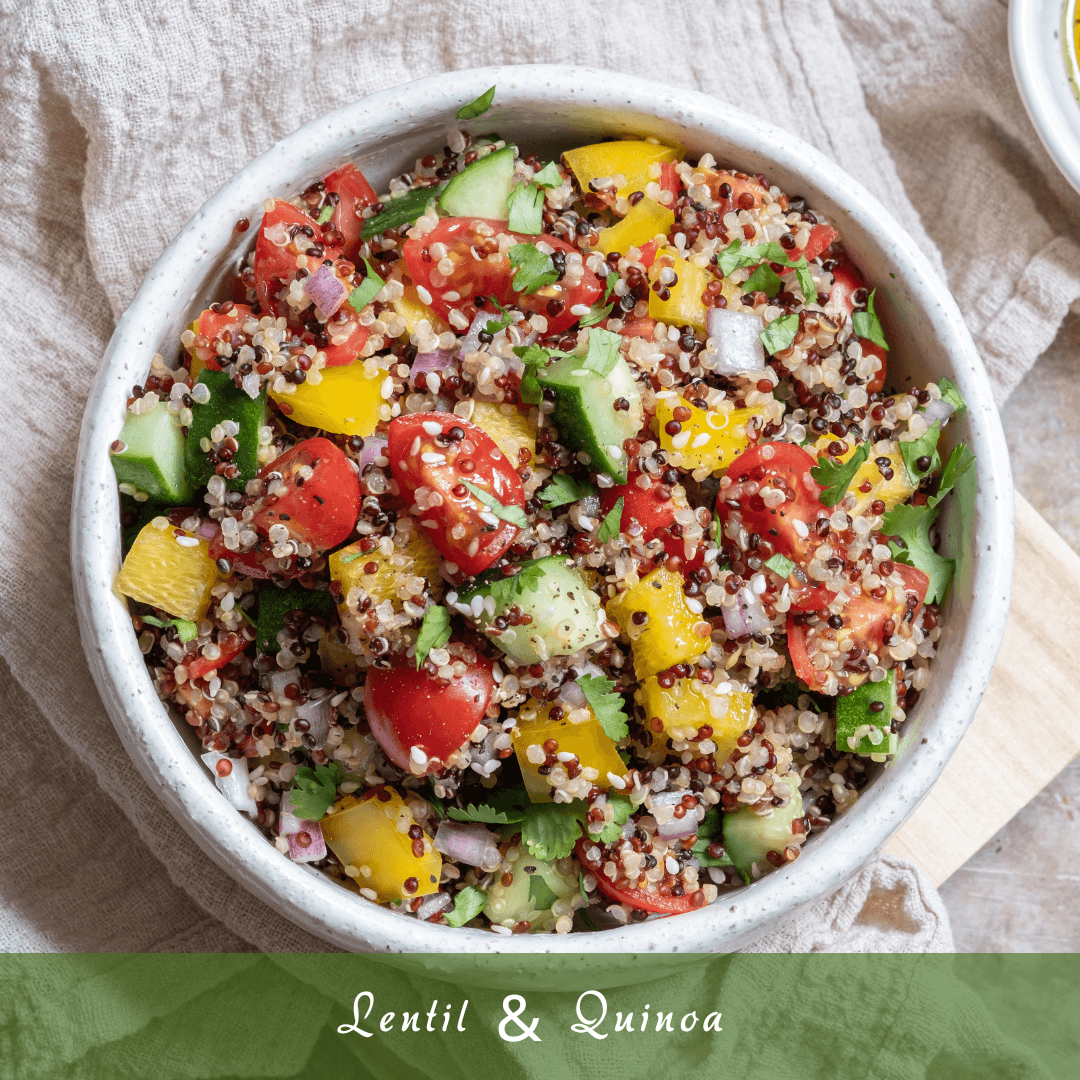
2. Tahini Dressing
The tahini dressing is a creamy, nutrient-rich sauce that enhances flavour while adding healthy fats and calcium to your lunch.
Prep time: 5 minutes | Cook time: 0 minutes | Total time: 5 minutes | Servings: 4
Ingredients
- Tahini: ¼ cup
- Lemon: 1, juiced
- Garlic: 1 clove, minced
- Water: 2–3 tablespoons (for thinning)
- Sea salt to taste
Method
- Whisk tahini, lemon juice, and garlic in a bowl.
- Slowly add water until smooth and creamy.
- Season with sea salt and drizzle over bowls or salads.
Nutrition Facts (per serving)
- Calories: 90
- Protein: 2g
- Carbs: 3g
- Fat: 8g
Health Benefits
Tahini is rich in heart-healthy fats, plant-based calcium, and iron. It supports strong muscles, healthy joints, and better nutrient absorption. Its mineral content also aids energy production, making it a brilliant addition to any plant-based meal plan.
Dinner
End your day with a hearty, high-protein vegan dinner that promotes muscle recovery, supports digestion, and delivers lasting energy—perfect for staying strong and nourished after a long day.
1. Side Of Edamame
A simple yet powerful side dish, edamame is loaded with plant protein, fibre, and essential amino acids for muscle health.
Prep time: 2 minutes | Cook time: 5 minutes | Total time: 7 minutes | Servings: 2
Ingredients
- Frozen edamame (in pods): 2 cups
- Sea salt to taste
Method
- For five minutes, boil the edamame in salted water.
- After draining, season with sea salt. Serve as a warm side dish.
Nutrition Facts (per serving)
- Calories: 190
- Protein: 17g
- Carbs: 14g
- Fat: 8g
Health Benefits
Edamame provides complete plant protein, fibre, iron, and calcium. It supports muscle strength, promotes healthy digestion, and aids recovery after exercise. Its nutrient profile also helps maintain energy levels and improves bone health, making it a bright, wholesome side.
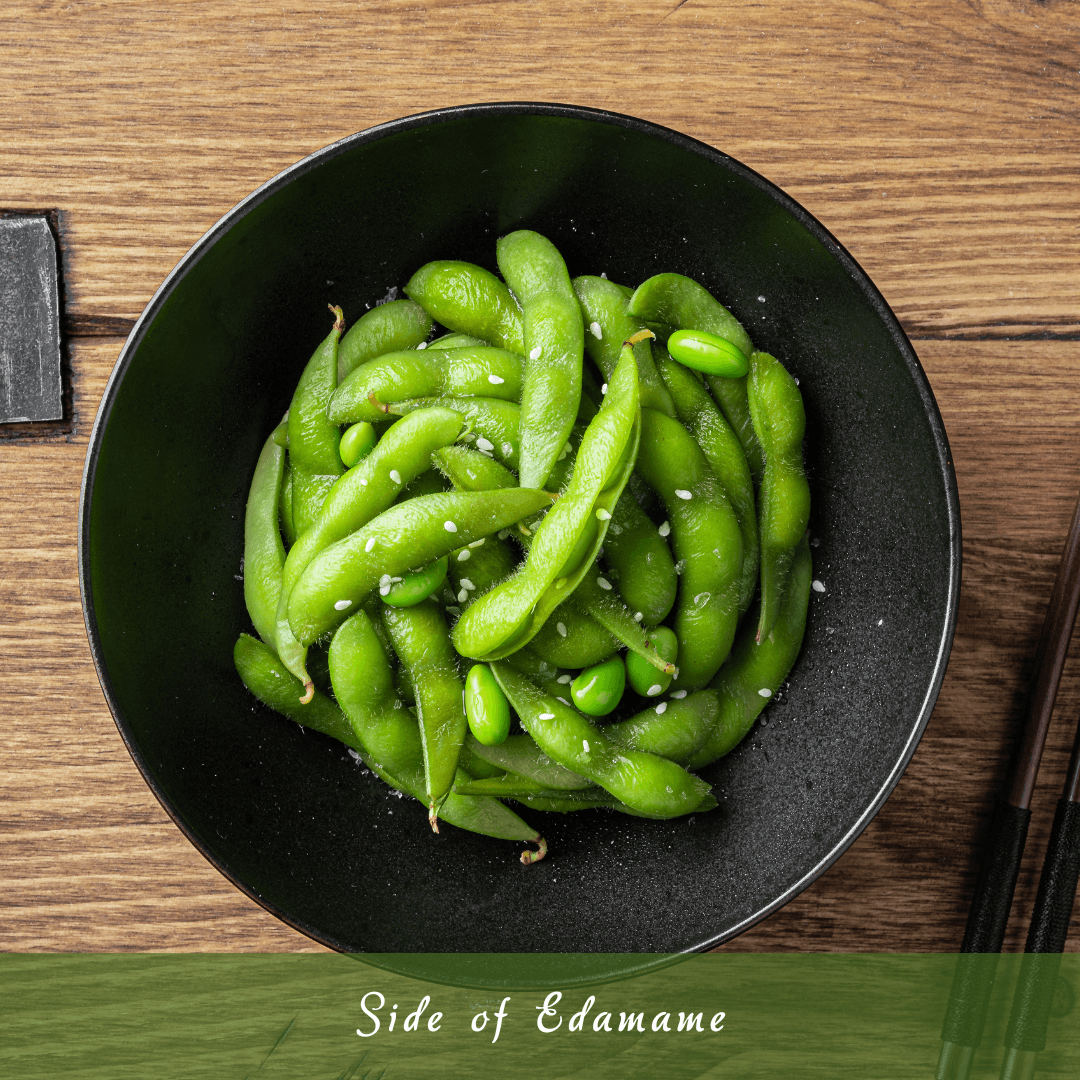
2. Seitan Stir-Fry With Broccoli & Brown Rice
A protein-packed dinner perfect for muscle recovery, this seitan stir-fry is flavourful, filling, and full of plant-based nutrients.
Prep time: 10 minutes | Cook time: 15 minutes | Total time: 25 minutes | Servings: 2
Ingredients
- Seitan: 200g, sliced
- Broccoli florets: 2 cups
- Sesame oil: 1 tablespoon
- Soy sauce (or tamari): 2 tablespoons
- Garlic: 1 clove, minced
- Ginger: 1 teaspoon, minced
- Cooked brown rice: 1 cup
Method
- Heat sesame oil in a skillet, and sauté garlic and ginger until fragrant.
- Add seitan slices and cook 3-4 minutes until golden.
- Add broccoli and soy sauce; stir-fry for 5-7 minutes until tender-crisp.
- Serve over brown rice.
Nutrition Facts (per serving)
- Calories: 550
- Protein: 35g
- Carbs: 40g
- Fat: 20g
Health Benefits
Seitan, broccoli, and brown rice deliver essential plant protein, fibre, vitamins, and complex carbs. This combination supports muscle repair, boosts digestion, and provides lasting energy, making it ideal for recovery after workouts and maintaining overall strength and endurance on a vegan diet.
Want to Share Your Passion for Vegan Living?
Discover how easy and fulfilling vegan living can be —
from recipes and travel to lifestyle and sustainability tips.
Read this blog post next:
How to Start a Vegan Blog (and Turn Your Passion into Purpose).
Debunking Vegan Muscle-Building Myths
Myth 1: You Can’t Get Enough Protein On A Vegan Diet
Plant-based diets can meet muscle-building protein needs. Foods like tofu, tempeh, lentils, quinoa, seitan, and vegan protein powders provide complete or complementary amino acids to fuel muscle growth — no animal products required!
Myth 2: Vegan Diets Lack Strength-Boosting Nutrients
Many believe plant-based diets lack essential nutrients. Thoughtful planning covers everything. Omega-3s from algae, iron from legumes, calcium from fortified plant milk, and B12 supplements ensure vegan athletes stay strong, healthy, and competitive.
Myth 3: Vegans' Muscle Gain Is Slow
Understanding how to build muscle as a vegan helps debunk the myth that plant-based athletes gain muscle more slowly than omnivores.
Studies show that plant-based protein can trigger muscle protein synthesis more effectively when protein intake and amino acid profiles are adequate.
Myth 4: Only Animal Protein Builds Muscle
Protein quality isn’t limited to meat. Combining plant foods (like rice and beans) creates complete proteins, while plant-based protein powders (pea, soy, hemp) match whey protein in muscle-building results.
Myth 5: Vegan Diets Can’t Support Strength Athletes
From Olympic weightlifters to bodybuilders, many athletes thrive on vegan diets. Plant-powered athletes often report improved recovery, lower inflammation, and better endurance, which are crucial for consistent training and strength progression.
FAQs
Q1: How Much Protein Do I Need To Build Muscle On A Vegan Diet?
Most physically active individuals wishing to grow muscle should take between 1.6 and 2.2 grams of protein per kilogram of body weight daily.
Q2: Do I Need A Vegan Protein Supplement?
Not necessarily, but it can help. If you're having trouble meeting your protein goals with whole foods, a high-quality vegan protein powder can be a handy supplement.
Q3: What’s The Best Time To Eat Protein For Muscle Gain?
For the best muscle recovery, include a protein-rich breakfast or shake 30 to 60 minutes after working out, and try to distribute your protein intake equally throughout the day.
Conclusion
Learning to build muscle while vegan is essential to achieve strength and fitness objectives while leading a compassionate and sustainable lifestyle.
Focusing on plant-based protein sources, progressive overload, and proper rest allows your body to grow stronger naturally.
With consistency and thoughtful meal planning, vegan athletes can meet their fitness goals while aligning with compassionate and sustainable living. Plant-powered strength is not only possible — it’s thriving!
I trust you enjoyed this article on How To Build Muscle As A Vegan. Please stay tuned for more plant-based recipes, vegan travel tips, and lifestyle inspiration.
Take care!
— JeannetteZ 🌿
💬 Your Opinion Is Important To Me
Do you have thoughts, ideas, or questions? I’d love to hear from you. Please leave your comments below, or email me directly at Jeannette@LivingTheVeganLifestyle.org.
📚 More Vegan Lifestyle Reads
🌱 My #1 Recommendation for Online Success
Sharing my passion for vegan living — from food to fashion — has been such a rewarding journey.
If you’ve ever dreamed of building your own ethical lifestyle brand or blog, this is the best place to start.
🌟 See How Vegan Bloggers Build Online Income — Try WA Free (No Credit Card Needed)
Disclosure
This post may contain affiliate links. As an Amazon Associate and participant in other affiliate programs, I earn from qualifying purchases at no extra cost to you. Please read my full affiliate disclosure.

